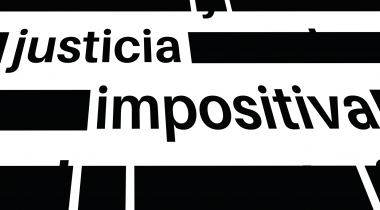
Liz Nelson ■ Moving beyond poverty begins with tax justice

The former United Nations Special Rapporteur on Extreme Poverty and Human Rights Professor Philip Alston has concluded his missions to observe the state of human rights in various countries, with strong condemnation of the failures to eradicate poverty.
And he begins and concludes his final report for the Human Rights Council underlining the importance of tax justice. This speaks volumes about how far the tax justice agenda has travelled since the Tax Justice Network was founded.
Poverty is a political choice and its elimination requires: (i) reconceiving the relationship between growth and poverty elimination; (ii) tackling inequality and embracing redistribution; (iii) promoting tax justice; (iv) implementing universal social protection; (v) centering the role of government; (vi) embracing participatory governance; and (vii)
~ Philip Alston, 2020.
adapting international poverty measurement.”
Having recently handed over the reins of the Special Rapporteur role on Extreme Poverty and Human Rights to Olivier De Schutter, Alston sets out why tax justice is so pivotal to the realisation of human rights and to addressing inequalities. He echos the four Rs of tax: revenue, redistribution, re-pricing and representation. He points to the colossal sums lost to illicit financial flows (estimated between US$500-600 billion annually) and to the undermining of the realisation of rights by tax evasion and avoidance.
The report criticises the relentless rewarding of wealth over labour, and the ‘pretence’ that private sector interests can, and do, adequately fill gaps in public need. Ultimately, the dominant narrative of private sector ‘efficiency’ and of public-private partnerships has drowned out the obligation to uphold and protect rights to education and to health. Politicians have failed to deliver on the transformation that fair taxes can make, but as Philip Alston’s report highlights,
‘over time “taxation, both as a symbol of solidarity and burden-sharing, and as a reflection of deeper values, must be front and center in any set of policies to eliminate poverty.”
Alston’s country missions and reports have powerfully shone a light on political failings and the rights failures and impoverishment of citizens. He aimed some of his strongest criticism at some of the wealthiest nations (USA, UK and Northern Ireland) . Their political choices have resulted in shocking and extreme social and economic inequalities.
Not surprisingly, the various goverment responses illustrate an indifference or refusal to address policy decisions that favour private interests over social and economic equality. They range from denial and political indifference to public insults.
Professor Alston’s USA and UK reports and his later mission to Spain challenged political elites head-on to ‘look in their own back yard’ at the ‘parlous’ state of poverty and contrast that with their public rhetoric. The reports have been both a harbinger of the deep social and economic inequalities that have been magnified during the COVID-19 pandemic, a critical record of a collective failure to ‘care’ for those most in need. and a reflection of the loss of a moral compass.
The sustainable solution for the extreme poverty and hardship exacerbated by Covid 19 would be significantly alleviated by transparency. As Philip Alston says in his concluding points:
A common set of indicators for tracking income and wealth should be
prioritized in the next revision of the UN System of National Accounts. Governments should publish income, wealth, and effective tax rates of top earners, and require multinationals to publish country-by-country reporting data.”
The influence and key importance of the tax justice agenda is inescapable. Within the G77, the OECD, and here in this report, parts of the UN are recognising the centrality of tax justice. They must also recognise the need for systemic levels of transparency.
At the heart of tax justice is a progressive choice to address the horrors of extreme poverty and increasing inequalities. Governments now need to demonstrate a meaningful commitment to eradicate poverty and meet their obligations of realising human rights. In essence, it requires governments to work in unity to dismantle a failed fiscal architecture; and those same governments underpinning that unity with political leadership. Philip Alston ends his report thus:
Protestations of inadequate resources are entirely unconvincing given the determined refusal of many governments to adopt just fiscal policies, end tax evasion, and stop corruption.”
We must have an intergovernmental body to agree a series of tax and financial transparency standards – where all governments from ‘developing’ (usually plundered) countries and ‘developed’ nations can formulate sustainable revenue and redistribution standards.
Image by Milan Rout.
Related articles

Ireland (again) in crosshairs of UN rights body

Tax policy and gender disparity: A call to action on International Women’s Day 2024

Policy research conference: How a UN Tax Convention can address inequality in Europe and beyond

The IMF’s anti-money laundering strategy review is promising, but it all comes down to implementation

New Tax Justice Network podcast website launched!

People power: the Tax Justice Network January 2024 podcast, the Taxcast

As a former schoolteacher, our students need us to fight for tax justice
Submission to the UN Special Rapporteur on extreme poverty and human rights’ call for input: “Eradicating poverty in a post-growth context: preparing for the next Development Goals”
17 January 2024
Submission to the Committee on Economic, Social Cultural Rights on the Fourth periodic report of the Republic of Ireland


